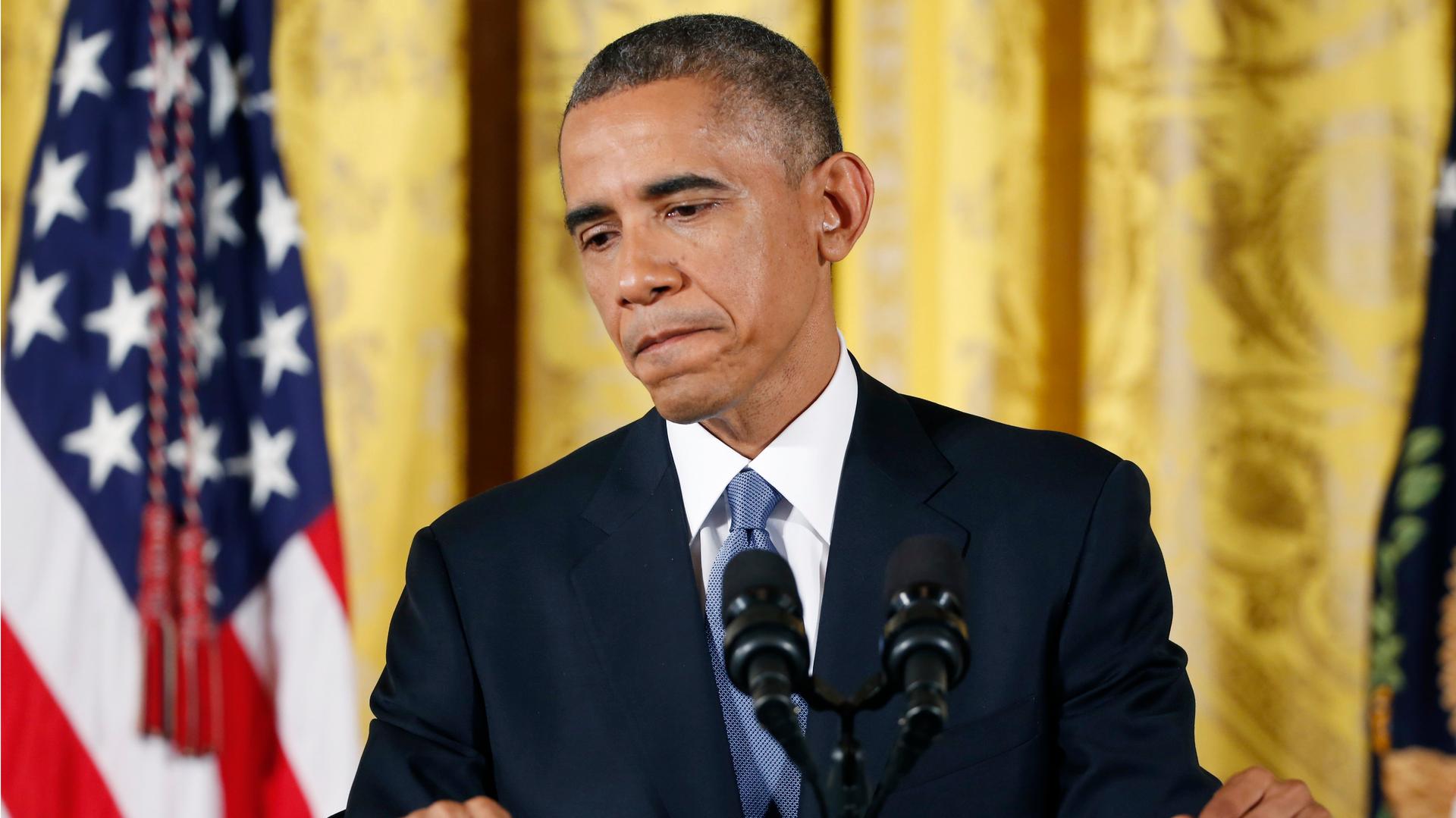Overseas, America’s midterm elections are being viewed as a ‘For Whom the Bell Tolls’ moment for President Obama’
US President Barack Obama answers questions at a news conference in the East Room of the White House in Washington, November 5, 2014.
The 2014 midterm election results are in. And with a Republican House and Senate, President Barack Obama may have his hands full.
Can House Speaker John Boehner and Majority Leader Mitch McConnell wrangle a fractious party? What do we know about where the country is headed in the last years of President Obama's final term? That remains to be seen — and Americans aren't the only ones watching.
When the United States holds a national election, the rest of the world watches. Edward Luce, US columnist for the Financial Times, says that those who are paying attention know that gridlock stems equally from both parties.
"If not more from the Republicans,” he adds. “But in terms of President Obama’s foreign scope to pursue an active and effective foreign policy, and his willingness to do so, there is already deep skepticism about that around the world. I think Tuesday night’s results in the midterm elections will only reinforce that.”
In Europe, there is still some hope that a Republican-controlled Congress will give President Obama the authority to independently negotiate a trans-Atlantic trade deal. Luce finds that prospect to be highly unlikely.
“I think the Republicans would be loathe to give Mr. Obama such scope to negotiate a deal without their input,” he says. “Especially having just won what they see as a wave election, and an election that they see as a mandate to repudiate President Obama’s agenda.”
In addition to America’s allies in Europe, Luce says opponents in places like Moscow, Beijing and Caracas are also paying attention to the results of the 2014 midterm elections.
“There will be nuances depending which parts of the world are looking at this,” he says. “But overall, it’ll be seen as a sort of ‘For Whom the Bell Tolls’ moment for President Obama two years before his presidency officially comes to an end.”
In the near future, one of the most important issues on President Obama’s foreign policy agenda is an Iranian nuclear agreement — an agreement that might be complicated by the 2014 midterm results.
“There’s a deadline for [the nuclear] talks to reach agreement later this month,” Luce says. “Congress would of course be involved with that too.”
In exchange for dismantling part of its nuclear enrichment program, Luce says President Obama will need to get Congress to start reducing sanctions on Iran.
“Will this new Congress be more likely to cooperate with that than less?” he says. “I would have thought they’ll probably be less likely to cooperate.”'
This story first aired as an interview on The Takeaway, a public radio program that invites you to be part of the American conversation.
